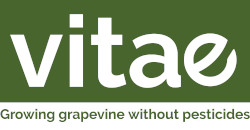Economic valuation and incentives
Workpackage WP6 aims at identifying innovative and sustainable economic and/or regulating incentives to promote vineyard agro-ecological transition and mitigate pesticide use, focusing in parallel on consumers and producers.
- What are the consumers’ real expectations regarding the non-use of pesticides?
Wine consumers’ expectations on environmental and health improvements in production methods are becoming increasingly important and are gradually being reflected in their purchases. However, it remains complex to measure consumers’ true trade-offs between the attributes of sustainable development and the organoleptic evaluation, which often predominates. Then, we will set up an experimental market to measure the value of wines produced without pesticides, taking into account trade-offs with organoleptic quality. We will also carry out specific work on the valuation by consumers of wine for organic certification and the consequences communicated on the purely environmental aspect of biodiversity.
- What are the economic and/or regulating incentives for winegrowers for zero pesticide production?
On the production side, pesticides are used by winegrowers as an insurance tool against the risk of crop loss. Because small winegrowers cannot much diversify, a high yield loss in a given year jeopardizes the survival of the farm; for renowned growers, the opportunity cost of foregone profits is huge. In WP6 we will consider economic incentives (price, public subsidies, insurance scheme) that can help winegrowers overcome the potential loss in profit and encourage them to adopt low- or zero-pesticide practices.

